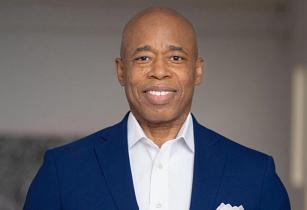New York Mayor Eric Adams meets with Netanyahu, protest leaders in Israel
New York City Mayor Eric Adams has met Israeli Prime Minister Benjamin Netanyahu as part of an official visit to Israel — a tradition among the United States city’s mayors.
But as he continues his three-day tour, Adams faces pressure to both signal support and acknowledge the backlash to Netanyahu’s far-right government.
“I am aware that my trip comes at a pivotal moment for Israel,” Adams wrote in a column for The Jerusalem Post on Tuesday. “Democracy is never easy, and it is only by confronting our differences that we can emerge stronger.”
Tuesday marked the second day of Adams’s visit — his first as mayor and third overall — and he began by meeting with protest leaders, though his team did not disclose who they might be or where the gathering took place.
Adams later posted a photo of the meeting, calling it an “honest conversation” with “numerous issues at play”.
Israel has seen a widespread backlash to a judicial reform package that would limit the Supreme Court’s ability to review legislation and grant the government greater authority over the appointment of judges.
Critics have claimed the reforms are a threat to democracy. In recent months, tens of thousands of people have crammed the streets of cities like Jerusalem and Tel Aviv to protest the changes.
Adams did not comment directly on the controversy, and later in the afternoon, he had a private meeting with Netanyahu.
“The people of Israel will make the determination on how they want to move forward,” Adams told The Associated Press on Tuesday. “I have lots of challenges in my city, and I wouldn’t want someone to come in and interfere with how I’m running things.”
Adams also courted controversy by meeting with Israel Ganz, who leads the Binyamin Regional Council, which governs dozens of Israeli settlements in the occupied West Bank.
Those settlements are considered illegal under international law, and the United Nations has condemned their expansion in recent months.
“Israel’s persistent expansion of its settlements in the occupied West Bank, including East Jerusalem, deepens humanitarian needs, significantly fuels violence, increases the risk of confrontation, further entrenches the occupation and undermines the right of the Palestinian people to self-determination,” a spokesperson for UN Secretary-General Antonio Guterres said in a statement in June.
The statement underscored that the continued construction was a “flagrant violation of international law”.




